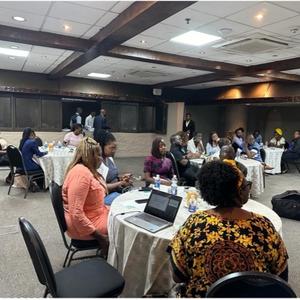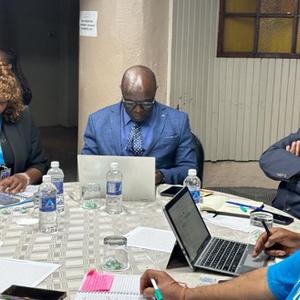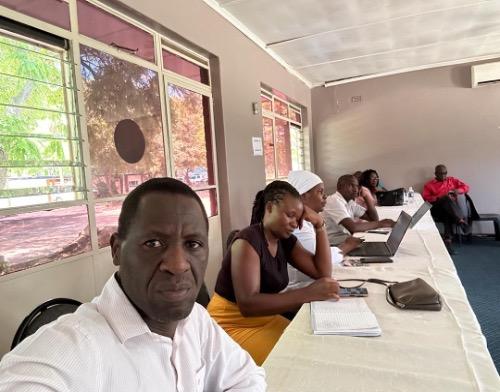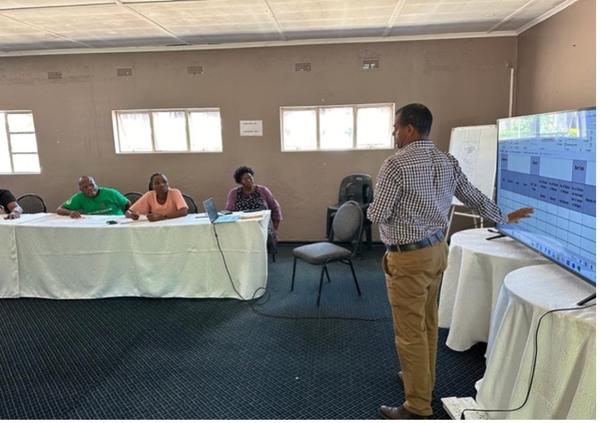Overcoming Misinformation and Engaging Communities in Zimbabwe's Polio Vaccination Campaign
Summary
This article discusses the success story of overcoming misinformation and engaging communities in Zimbabwe's polio vaccination campaign through strategic Social and Behavior Change (SBC) interventions.
Success Story – Overcoming Misinformation and Engaging Communities in Zimbabwe's Polio Vaccination Campaign
In 2023, Zimbabwe faced a critical public health emergency with the outbreak of circulating vaccine-derived polio virus type 2 (cVDPV2), prompting the Ministry of Health and Child Care (MoHCC) to respond decisively. The government implemented two rounds of vaccinations with the novel Oral Polio Vaccine type 2 (nOPV2) starting in early 2024, but the campaign faced significant obstacles in misinformation and vaccine hesitancy.
Combating Misinformation Through Strategic Media Engagement

At the onset of the vaccination campaign, misleading information rapidly spread across social media platforms, fueled by alarmist headlines and inaccurate reports. This negative publicity threatened to undermine the vaccination efforts by fostering mistrust and fear among the population. Recognizing the urgency of the situation, the Social Behaviour Change team spearheaded a crisis communication strategy to reclaim the narrative.

The SBC team organized High-Level Meetings with media stakeholders from both state and private outlets. These sessions served as platforms for dialogue, where health officials, including representatives from the Global Polio Eradication Initiative and the Zimbabwe National Immunization Technical Advisory Group (ZimNITAG), provided clear, factual updates about the polio outbreak. By filling information gaps and addressing the media’s concerns, these engagements encouraged responsible and factual reporting, which played a pivotal role in reshaping public perception.
Fostering Faith-Based Support and Understanding
Amid the campaign, it became apparent that some religious communities harbored concerns about the vaccines, driven by misconceptions and doctrinal beliefs. To address this, the SBC team facilitated Inter-Faith Dialogues in the provinces of Manicaland and Masvingo, focusing on enlightening religious leaders about the importance and safety of the polio vaccine.
These meetings were crucial in building trust and support among religious leaders, enabling them to become advocates for vaccination within their communities. The discussions not only increased awareness but also helped alleviate fears and dispel myths surrounding the vaccine, enhancing community cooperation in the vaccination effort.
Tracking and Addressing Vaccine Hesitancy
To tackle ongoing challenges of vaccine refusal effectively, the SBC team introduced innovative tools designed to monitor and respond to community sentiments.

- Real-Time Refusals Tracker: This online tool captured details of vaccine refusals, providing valuable insights into the reasons behind hesitancy and enabling targeted interventions.
- Rumour Management System: By tracking the spread and nature of misinformation, this system allowed the SBC team to quickly address rumors and adjust communication strategies accordingly, ensuring that factual and reassuring messages reached the community.

Impact and Success of the Interventions
The strategic interventions collectively led to significant success in the vaccination campaign. By the conclusion of the second round in March 2024, Zimbabwe had vaccinated over 4.7 million children, exceeding the target by 13.2% and achieving a coverage rate of 113.2%. This remarkable achievement highlighted the effectiveness of the comprehensive communication and community engagement strategies deployed by the health authorities.
Zimbabwe's experience with the polio vaccination campaign illustrates the power of effective communication and community engagement in overcoming public health challenges. Through proactive media relations, faith-based collaborations, and innovative monitoring tools, Zimbabwe not only countered misinformation but also built a strong foundation of community trust and participation, setting a model for future health initiatives.

